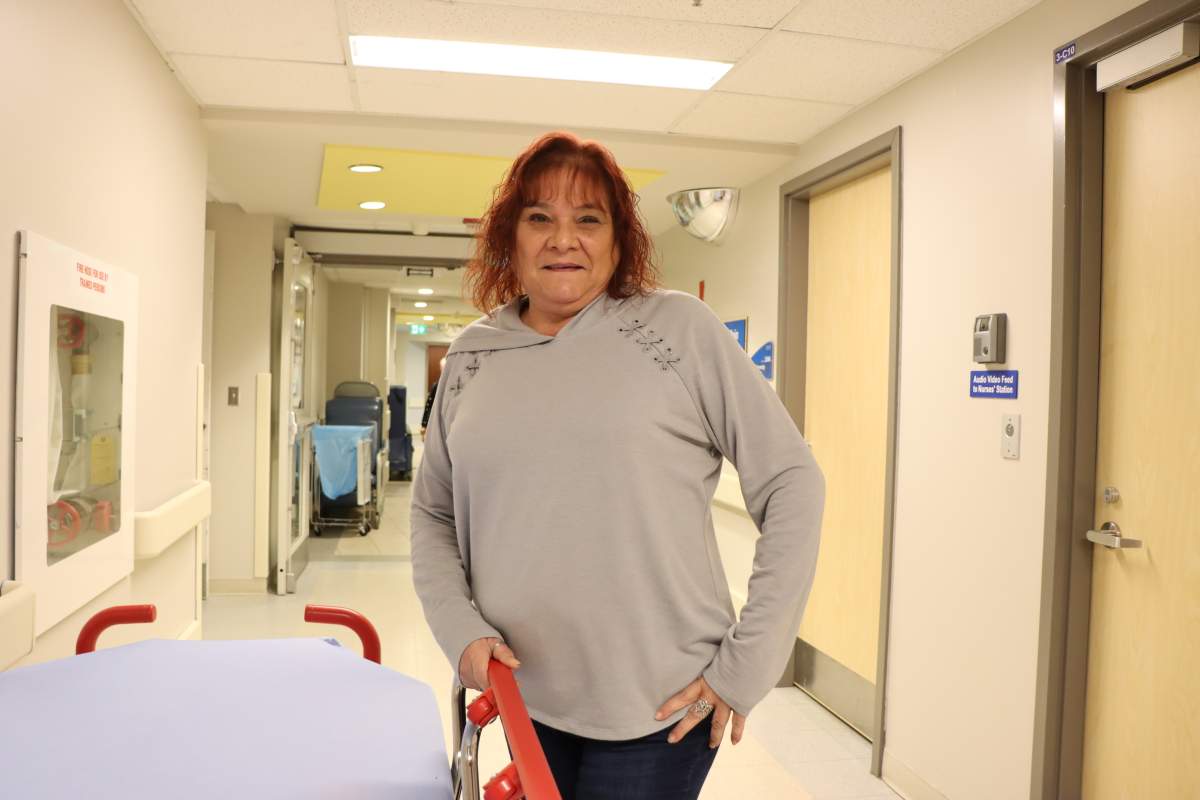A new program is being added to the emergency department at Guelph General Hospital.

The department will now have someone on staff who is there to help incoming patients with dementia.
Ila Weston-Davis is the hospital’s new Dementia Resource Consultant (DRC). It is part of the Alzheimer’s Society’s DREAM program (Dementia Resources Education Advocacy Mentorship) that was launched at the hospital in January to coincide with Alzheimer’s Awareness Month.
“(The DRC) work alongside the emergency department staff whether that be nurses, doctors, or physical therapists,” said Michelle Martin, executive director at the Alzheimer’s Society of Waterloo Wellington.
“They help support that emergency department staff person in how to de-escalate behaviours.”
The duties of the DRC include: coaching staff to recognize dementia-related behaviours, referring patients and caregivers to community resources, and to liaise with other community health services, nurse practitioners, and doctors. The DRC will be available Monday to Friday from 8:30 a.m. to 4 p.m.
Melissa Skinner, the hospital’s VP of Patients Services and Chief Nursing Executive, said the addition of Weston-Davis to the emergency department comes as more patients with dementia are coming to their hospital.

Get weekly health news
“Often times, those family members and seniors don’t have access to the resources in our community,” said Skinner. “This individual who that is going to be in our (emergency department) is going to help make those connections.”
The DREAM program has been in place since 2021. It was first introduced at Brantford General Hospital and was implemented at the Grand River Hospital in Kitchener last November. Martin said the early results have shown that the programs has made a positive impact
“We’ve seen a total of 20 diversions and close to 60 interactions,” Martin said. “Those 20 people that got diverted would have been in hospital.”
Martin added that dementia patients stay in hospital 30 to 40 percent longer than those who don’t live with dementia.
There are over 16,500 people in Waterloo-Wellington living with dementia. The signs vary from person to person.
“It can range from mild signs and forgetfulness all the way to their families are coping with really challenging behaviours,” said Skinner. “You do see that with an aging population and this is going to be such an incredible resource for those families and the patients themselves.”
The DREAM program is running at the hospital as a three-month pilot project. Funding for it is coming from the Ministry of Health but only until March 31.
Both Skinner and Martin hope the program will prove to be a success and that they will be able to secure more permanent funding in order to serve more patients with dementia.












Comments